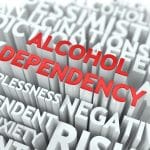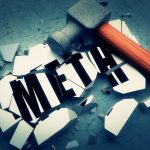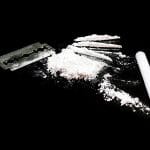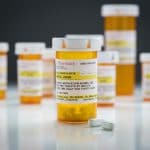What is Medication-Assisted Treatment?
Medication-assisted treatment, or MAT, is when medications are used during the withdrawal, or ‘detox’, period to curb symptoms, keeping patients stable and comfortable. But they can also be used during the later stages of treatment. They help curb cravings and make relapse less likely.
This process can be used during detox, inpatient rehab, or as part of an intensive outpatient rehab plan.
MAT is a new way of treating addiction, but it has shown promising results. For certain types of patients, MAT has been shown to:
- Lead to higher rates of survival among patients.
- Decrease rates of illegal drug use and other criminal activity in people with substance use disorders.
- Increase the rates of treatment retention.
- Increase the ability of patients to get jobs and keep them.
- Improve outcomes for pregnant women who have substance use disorders.
What Types of Substance Use Disorders Can MAT be Helpful?
Medication is not useful for all patients. Currently, the vast majority of patients who receive this type of treatment have an opioid use disorder (OUD). There are also drugs that can help people who struggle with alcohol abuse.
The reason that MAT is used only to address certain issues is because of the brain chemistry involved. The medicines used in these treatments work mostly by curbing the cravings caused by certain areas of the brain. When it comes to opioid addiction, drugs that act on the opioid receptors are used. For alcohol addiction, drugs that affect the GABA receptors are used.
There are different types of medications that are used in MAT programs. Some of the most common ones are outlined below:
- Methadone, Probuphine, and Buprenorphine. These drugs are partial or full opioid agonists. This means that they work in similar ways to opioid drugs. However, with a carefully managed treatment plan and the use of other medications, these drugs can help to control cravings in opioid addicts. Ideally, these would be used for a set period of time to manage cravings when they are at their worst.
- Naltrexone. This drug can be used to treat both alcohol and opioid use disorders. Naltrexone blocks opioid receptors in the brain. People who take this drug, and then take alcohol or opioids, will not get the same pleasure from the substance abuse that they normally do. One danger of naltrexone is that it decreases a user’s tolerance to opioids. This can make overdose more likely.
- Disulfiram. This drug is used to curb drinking. It makes drinking alcohol very unpleasant. Symptoms such as sweating, vomiting, chest pain, and headache might present if drinking alcohol while taking this drug. when someone who is taking it drinks alcohol. These unpleasant symptoms discourage alcoholics from drinking.
How Does Northeast Addictions Treatment Center Cater to Patients Who Are Already on a MAT Program?
Currently, Northeast Addictions Treatment Center does not offer MAT services to our patients. But, that does not mean we can’t offer treatment services to those who are using medications as part of their recovery plan. MAT plans only work if strong therapeutic methods are used alongside the medications.
Here at Northeast Addictions Treatment Center, we offer a full range of evidence-based therapies that are specifically designed to help people recovering from addiction. At Northeast Addictions Treatment Center, we work closely with our patients to address and uncover personal issues and triggers with Internal Family Systems (IFS) Therapy.
We encourage and teach mindfulness to help patients address their unique ways of thinking and perceptions of the world through the work of Mindfulness-Based Cognitive Therapy (MBCT).
But most importantly, we practice Behavioral Therapies, such as Dialectical Behavioral Therapy (DBT) and Cognitive Behavioral Therapy (CBT) to help our patients change the way they think. By altering destructive thinking patterns, patients can learn to change the way they act, freeing themselves from the need to use substances.
If you are currently on a treatment plan that uses MAT, there is no better place to round out your care plan than Northeast Addiction Treatment Center. Our experienced staff will offer you a level of care that you simply can’t find elsewhere.
Written by
Northeast Addition Editorial Team
©2024 Northeast Addition Center | All Rights Reserved
This page does not provide medical advice.






